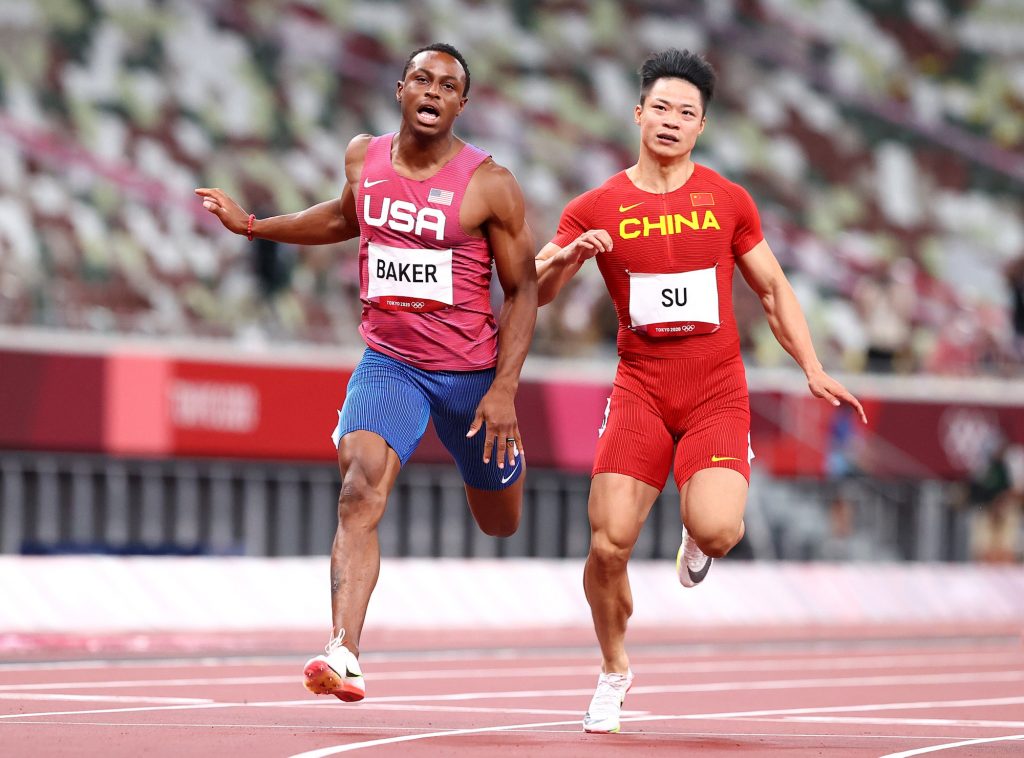The 32-year-old Su Bingtian broke the Asian record in the semifinals of the 100-meter event in the Tokyo Games
Photos by Andrew Boyers and Lucy Nicholson/File Photo/Reuters
(Reuters) – Asia’s fastest man Su Bingtian has backed Chinese sprinters to keep improving after a summer when the 32-year-old became the first athlete from the country to reach the final of the 100 meters at the Olympic Games.
Su led the United team—essentially China’s national squad—to gold in the 4×100 meters relay at the National Games on Friday, following his performance in the Tokyo Games, where he broke the Asian record in the semifinals of 100 meters.
The Guangdong native, who finished sixth in the 100 meters in Tokyo, also won gold in the individual event this week at the National Games in Xi’an. He expressed confidence China is producing sprinters capable of following in his footsteps.
“From today’s event, I can see a bright future for Chinese sprinting,” Su, who was appearing at his fourth National Games, said according to Xinhua.
“The top four in the final all broke the 38-second barrier, which really inspires me, because only the national team could do it a few years ago.
Su Bingtian, who finished sixth in the 100 meters in Tokyo, also won gold in the individual event this week at the National Games in Xi’an
“Chinese sprinting is on the right path, and the National Games is an important stage for promising sprinters before they attend the Olympic Games.”
Su set the Asian record for the 100 meters at 9.83 seconds to qualify for the Olympic final before running 9.95 seconds in the Xi’an Olympic Center on Tuesday to win the title at the quadrennial National Games.
Xie Zhenye is the only other Chinese sprinter to have run under 10 seconds for the distance, which he managed in 2018 before suffering a series of injuries that have affected his subsequent performances.

Winner of the National Games title in 2017, Xie ran 10.10 seconds to finish second behind Su on Tuesday as he continues his return to top form.
Xie’s “limit is definitely not 10.10,” said Su after the 100-meter final.
“He has been hampered by the injuries. This is not his best performance. I trust in Xie to have better results next year when he competes at the Asian Games in Hangzhou.
“We shouldn’t just question an athlete when he’s not at his best. Instead, we need to help and encourage him to regain his momentum.
“I will use my experiences to influence more people and let them appreciate Chinese athletes.”
(Reporting by Michael Church; Editing by William Mallard)